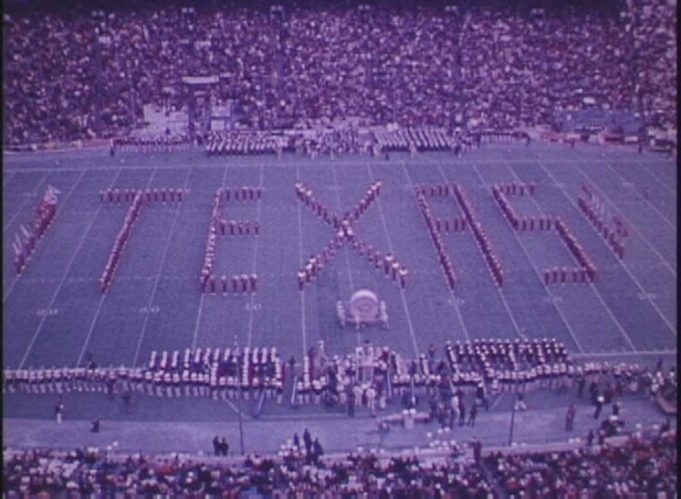Caroline Frick started the Texas Archive of the Moving Image in her tiny apartment in Austin in 2002. “It was a surreal, bootstrap kind of thing,” she remembered. “I had two kittens at the time, and cats love to treat film reels like they’re string.”
Still, she felt film preservation was a way to keep the state’s history: “When we think about film, we think about Hollywood feature films. In fact, since the 19th century, we’ve had sports movies, home movies, travel films, nature films, all the things that you find on YouTube. I found it really interesting that while Texas has incredible film, there wasn’t an organization around devoted to resurrecting that history.”
Frick brought extensive experience to the enterprise. She had grown up in Kansas, though her family’s roots are in Texas. Her education led her to pursue a master’s degree at the University of East Anglia in Norwich, England. “You’d study Hitchcock to find out about film narrative, but then you could also see footage of herring fisheries from 1910,” she said.
An itinerant career brought her to Washington, D.C., where she worked in the film archives of the Library of Congress, and Los Angeles, where she worked in the processing labs at Warner Bros. and programmed movies for AMC when the cable channel was still devoted to showing old films.
“When I came to Texas, I was fortunate to be able to look at what national preservation centers were doing, what we could do to prevent 100 years of history from being lost,” Frick said.
To that end, the nonprofit TAMI (whose staff is now as many as 15 when student interns come in) does the physical work of keeping celluloid from deteriorating, though most TAMI footage is digitized from original film or tape copies, which then go back to the original owners. The archive makes extensive copies available online. “We think lots of copies keep stuff safe.”
TAMI originally depended on donations coming into Austin, but in 2008, it began a partnership with the Texas Film Commission that allowed it to travel to communities across the state to collect from people. The Texas Film Round-Up has visited Texas cities small and large and stopped in Fort Worth last October.
“Texas is the only state that acknowledges the value of preservation as well as new productions,” Frick said. “We live in a big state, so it’s important to go out to places like Amarillo and Corpus Christi so people can bring us their home movies and collections.”
The event in Fort Worth yielded some fascinating finds, like a 1977 promotional film called Fort Worth: The Unexpected City, narrated by Jimmy Stewart. (“Who knew that he loved the city?” Frick said.) A treasure trove also came from Paul Camfield, who donated old episodes of the beloved 1960s North Texas kids’ TV show Slam Bang Theatre, hosted by his father Bill, a.k.a. Icky Twerp.
Frick, now film professor at the University of Texas-Austin, admits to difficulties in raising funds (“we’re not selling a product”) but continues to launch new online exhibits at texasarchive.org, the most recent being footage of NASA’s Apollo projects, including a PSA on workplace safety that was filmed by Doris Day. Frick said that Fort Worthers who missed the October event can still contribute to the preservation of history: “Even if your collection has already been digitized, or if you just know about someone who has old films lying around, we’re always looking for new contributions.”












